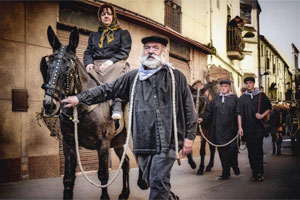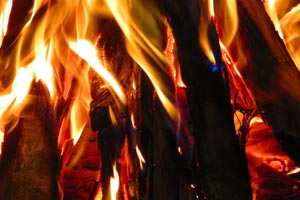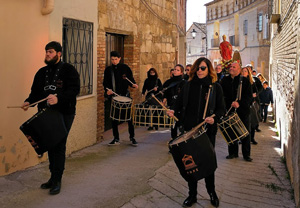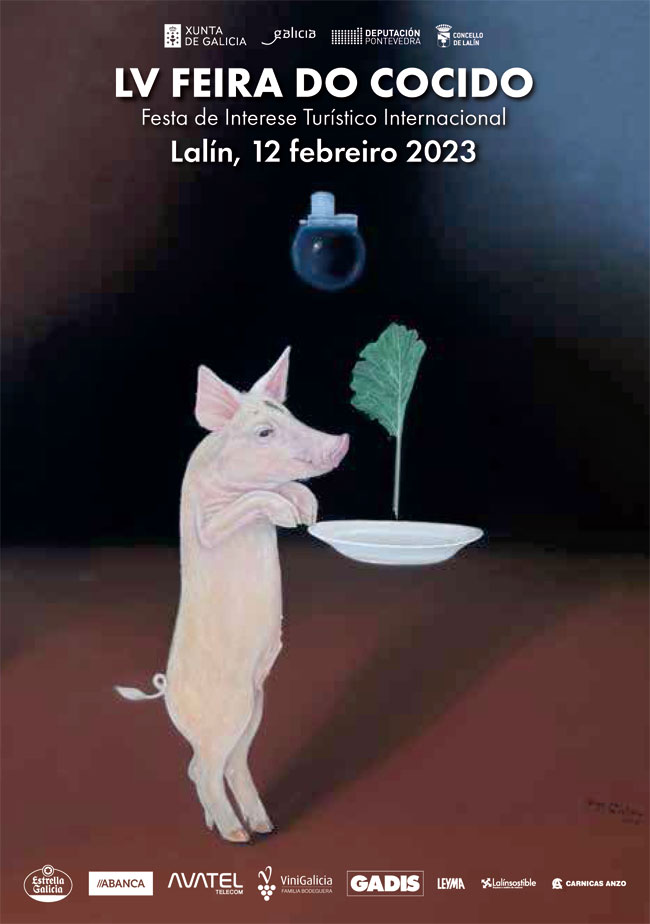The Colacho Festival
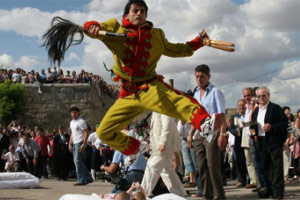
What is the celebration of El Colacho about?
In the town of Castrillo de Murcia, Burgos, an annual festival known as El Colacho takes place. The festival is celebrated every year on the Sunday following the religious holiday of Corpus Christi, which usually falls in the month of June.
The main event of the Fiesta del Colacho consists of a ritual in which a man dressed as El Colacho, also known as the Devil, jumps over babies placed on mattresses on the ground. The Colacho's leap represents the expulsion of evil spirits and protection against harm for the children.
This tradition, which has been continuously held since 1621, has been declared of tourist interest in the region of Castilla y León. El Colacho, dressed as a grotesque devil with a mask and colorful garb, devotes himself to chasing and playfully striking the town's inhabitants while they insult him. Along the route, locals set up flower altars for El Colacho to jump over the babies born that year.
The highlight of the celebration is the procession, where residents decorate their houses and place mattresses on the ground, where newborns are laid before the procession arrives. After the procession, the festivities continue with traditional dances, speeches, and the distribution of wine, cheese, and bread.
El Colacho, wearing a yellow jacket and pants adorned with red and green accents, is the central character of this farce. He wears a repulsive mask called "birria" with dark ash-colored eyebrows, eyes, and mouth, a prominent nose, and a pointed chin. He also carries enormous castanets and a horse's tail.
Throughout the festival, El Colacho takes center stage, chasing children and responding to insults from the townspeople. Accompanying him is the character of the atabalero, dressed in a long coat and a top hat, playing a drum that sets the rhythm of the celebration.
The Festival of El Colacho unfolds with a series of events and rituals. It begins with a procession to the parish church, where El Colacho and the atabalero hold a prominent place in the sanctuary. During the mass, these characters strike their instruments at solemn moments. Outside the church, the "corridas" take place, where the members of the religious brotherhood parade through the streets of the town in two rows, while El Colacho chases the children and the townspeople insult and hide.
The climax of the festivity is the religious procession, where houses are adorned and mattresses are placed on the ground for newborns to be blessed by a priest after El Colacho has jumped over them. The celebration continues with traditional dances, speeches, and the distribution of wine, cheese, and bread.
This unique festival has been passed down through the centuries and has become a deeply-rooted tradition in the community of Castrillo de Murcia. Despite its grotesque appearance, El Colacho plays a central role in this celebration, creating an atmosphere of excitement and mystery. The interaction between El Colacho, the children, and the townspeople, filled with insults and escapades, contributes to the fun and playful spirit of the festival.
Through the portrayal of this mythical character, the community renews and preserves its cultural identity, keeping alive a tradition that has endured through the centuries and continues to attract the attention of visitors and curious individuals from all over.
In addition to the Colacho's leap, the Fiesta also includes other festive activities such as parades, music, dances, and theatrical performances. The townspeople dress in traditional costumes and participate in various events that foster community spirit and enjoyment.
It is important to note that while the Fiesta del Colacho is a deeply-rooted tradition in Castrillo de Murcia, the act of jumping over babies has generated some controversy due to potential risks to the safety of the children. Safety measures, such as additional mattresses and medical supervision, have been implemented to protect the babies during the event.

